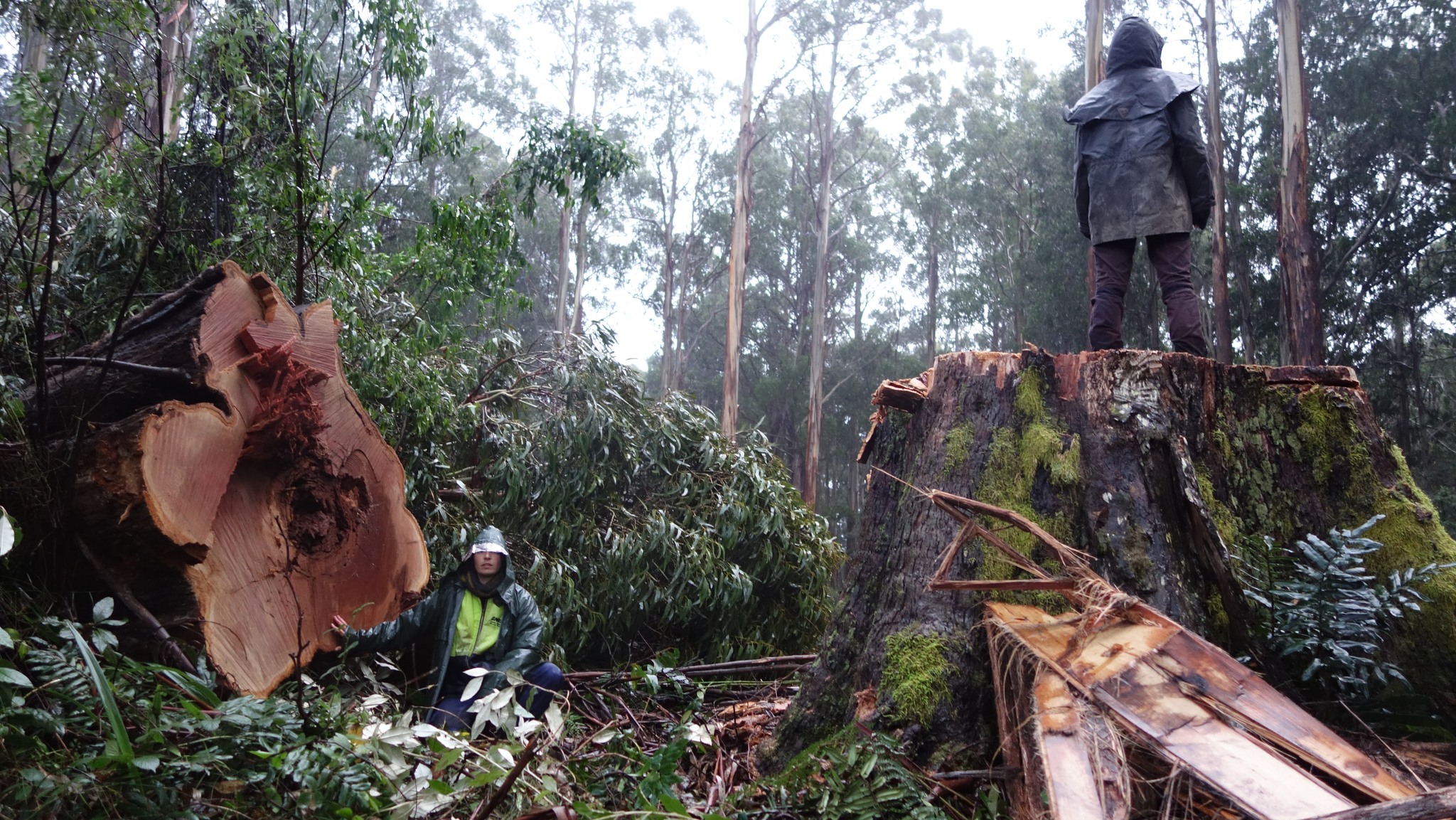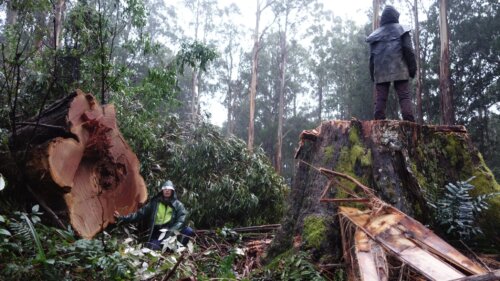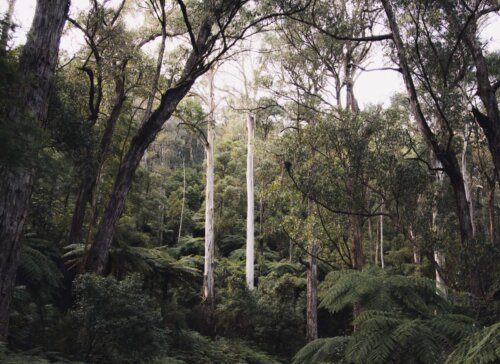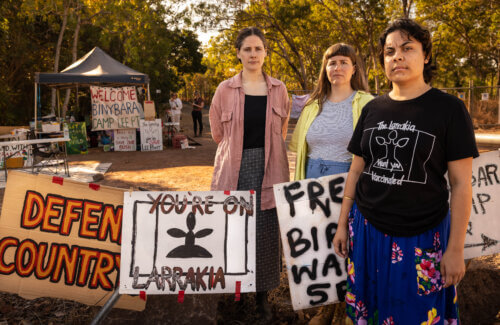Note: This page contains images which may be distressing for some.
It’s been a long time coming. The end of VicForests is here - but legal loopholes loom large.
As Victoria’s state-owned logging agency, VicForests was responsible for most major native forest logging across Victoria. This includes logging that landed them in Court on multiple occasions.
But as of yesterday, VicForests – the State-owned agency that faced court cases, criticism and complaints for illegal logging, greenwashing, covert surveillance, mismanagement and destruction of species and habitat – is no more.
Two weeks ago, the Victorian government passed the Sustainable Forests (Timber) Repeal Bill 2024 into law. The Bill abolished VicForests, and removed the legal framework that previously made commercial logging possible in Victoria’s state forests. Until now, the end of native forest logging had only been a government promise.
This is a crucial step. But, as we’ve seen since native forest logging officially ended in Victoria on 1 January this year, serious threats remain. Despite efforts from the Victorian Greens, the legal changes fail to close these loopholes.
Victoria's forests are breathtaking. They’re habitat for endangered animals and safe havens for ancient trees. They’re the lungs of communities, hubs for tourism, and magical places to rest and play.
These forests are vital for life – so it's time to protect them for good.
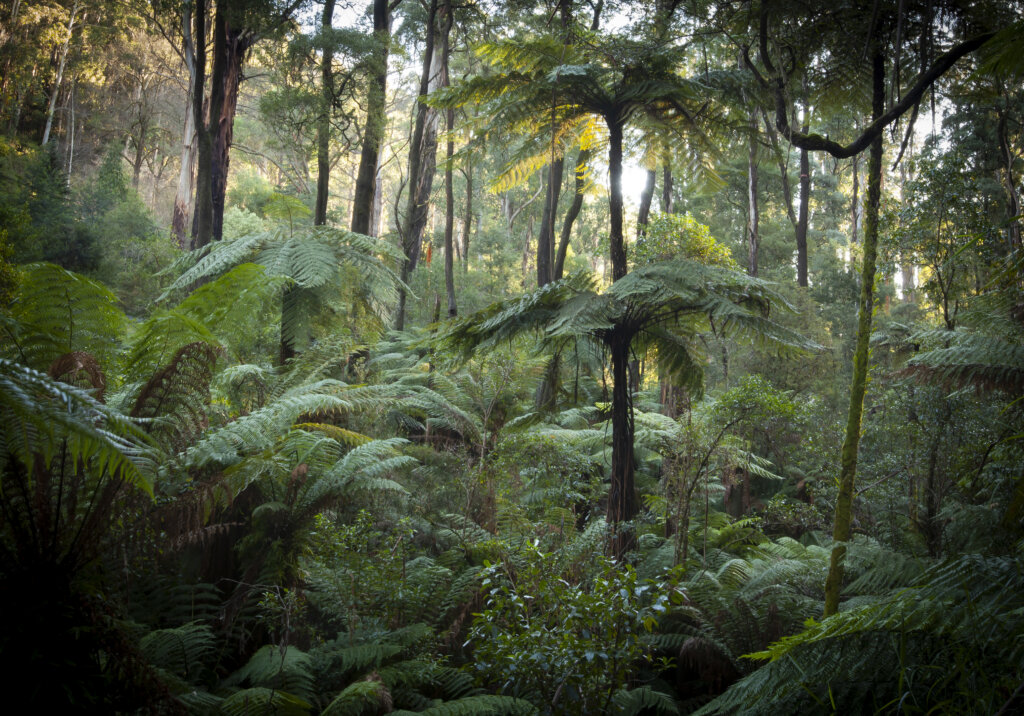
What has changed?
The Sustainable Forests (Timber) Act 2004 (Vic) has been repealed. For twenty years, the Act was the core piece of legislation enabling logging in Victoria’s native forests. Various amendments were made to the Act in this time – including the 2022 amendments to forest protest laws.
As of 1 July 2024, VicForests no longer exists and all of its rights, property, and liabilities have been transferred to the State. The end of VicForests comes nine months after sixty environment, community and legal organisations sent an open letter to Premier Jacinta Allen calling for the state-owned agency to be abolished.
Various changes have also been made to the Forests Act 1958 and other legislation to reflect the end of native forest logging and VicForests.
What's missing?
To see the end of native forest logging enshrined in Victorian law is a monumental achievement. We are only at this point thanks to decades of tireless work by activists, scientists, lawyers, Traditional Owners, organisations and communities.
But it's critical that the remaining legal loopholes are closed and rapid protections are put into place to safeguard against ongoing and future threats to Victoria's forests and the precious wildlife that call them home.
Critically, the legal changes:
- Do not affect commercial native forest logging that takes place in native forests on private land.
- Do not limit Forest Fire Management Victoria’s operations. These operations increasingly involve extensive and unprecedented felling and removing large and hollow-bearing trees which FFMV suggests is justified for ‘fire management’, even within National Parks. Only a few weeks ago, a dead greater glider was discovered in forest logged by FFMV – despite citizen scientists warning that the endangered possums were living in the trees that were on the chopping block. This year, new court cases have been launched to challenge the legality of these works, which are occurring without federal or State regulatory oversight.
- Do not interfere with the Victorian Agriculture Minister's discretion to hand out Forest Produce Licences for ‘small scale logging' - a power that had previously been delegated to VicForests.
- Do not explicitly promote or enhance the rights of Traditional Owners to care for Country.
Amendments tabled by the Greens in the Upper House sought to address these gaps and deliver legal guarantees that Traditional Owners would be meaningfully involved in decision-making. Unfortunately, those amendments did not pass.
In order to protect native forests for good, it’s vital these gaps are addressed and protection and restoration of native forests is prioritised.
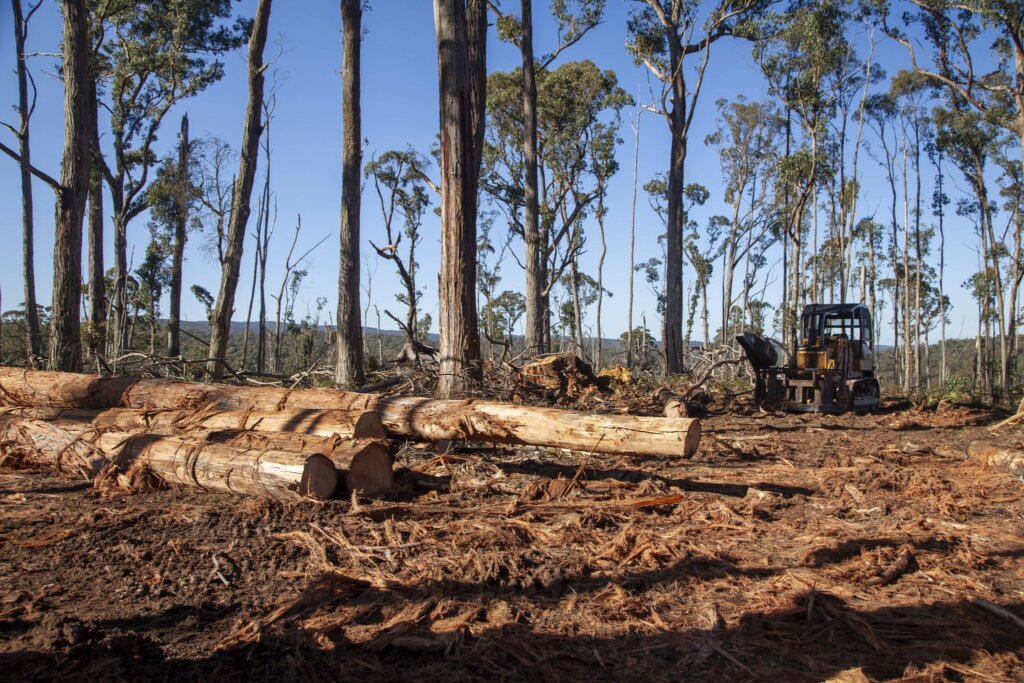
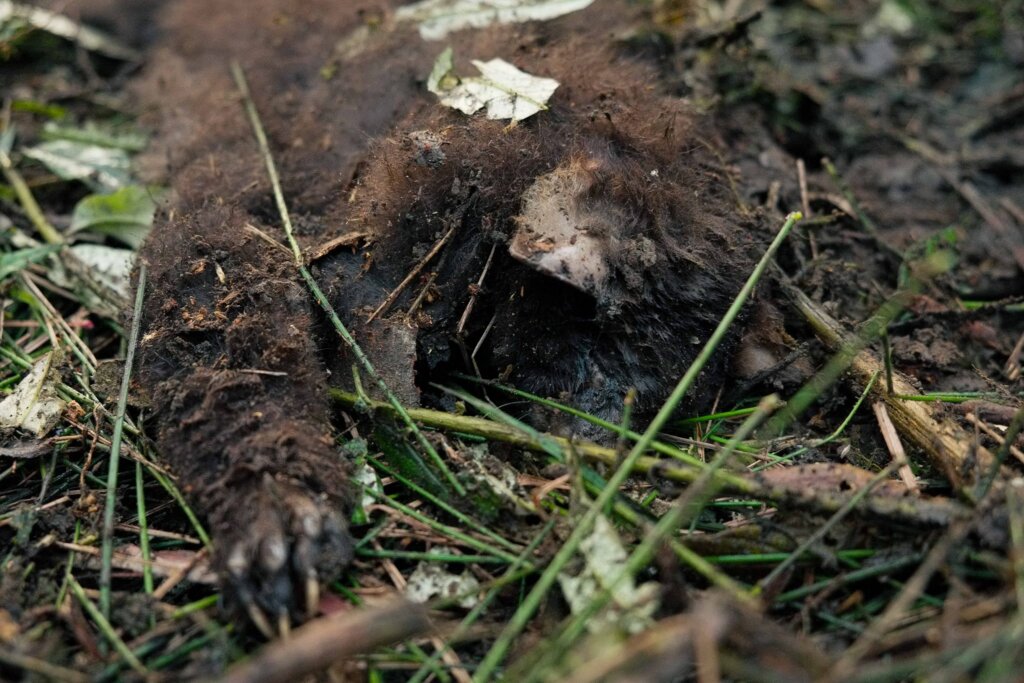
What happens next?
With opportunities to secure lasting protection and future enjoyment of our forests on the horizon, it’s time to close the loopholes, put announcements into action and finally deliver:
- New and expanded national parks and reserves to permanently protect the high conservation natural values, and intrinsic and physical cultural values of the Victoria’s native forests from logging, mining and other extractive threats.
- Enhanced and expanded joint management of all new and existing parks to deliver genuine improvements in First Nations control, care and jobs on Country, while Treaty progresses toward comprehensive land justice for Traditional Owners over all public lands.
- A roadmap to World Heritage assessment and listing for the outstanding universal natural and cultural values of Victoria’s native forests.
It is critical that new and existing protected areas are jointly managed by the rightful Traditional Owners of Country, with rapid law reform to amplify Traditional Owner agency, voice and models of care for healing Country.
Read more about our nature work

Make a difference
The challenges we face are vast. The time to push for large-scale system change is now.
Our financials
We have a long-standing commitment to sound fiscal management, accountability and transparency.
We encourage you to investigate before you donate.
Join us
The law is a powerful tool to disrupt the status quo and make governments and corporations accountable.
Join us and let's build a radically better world.
